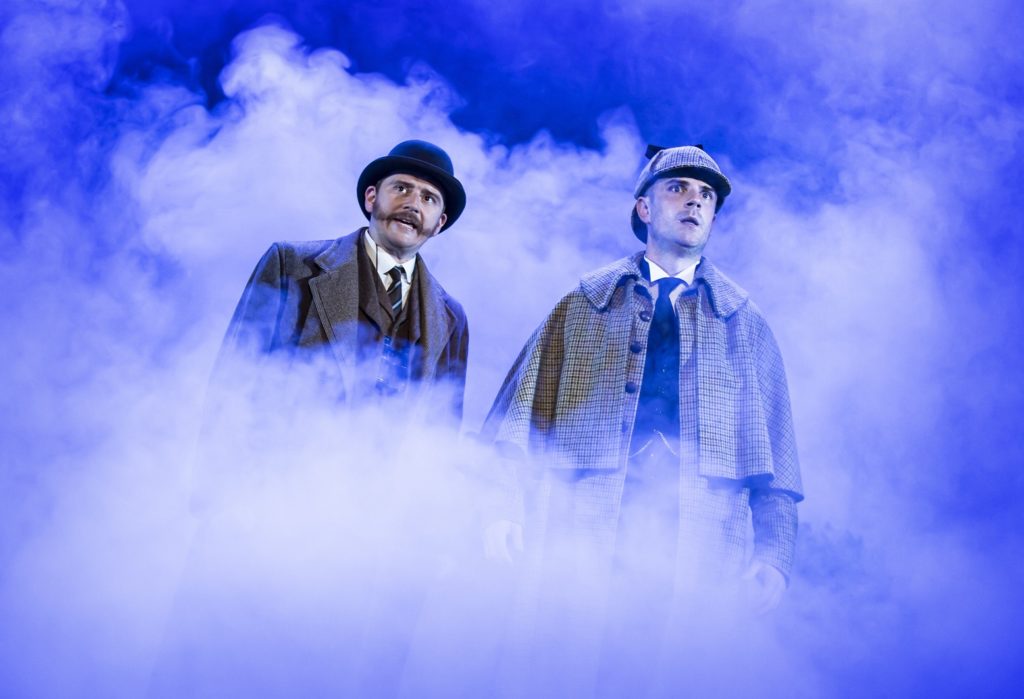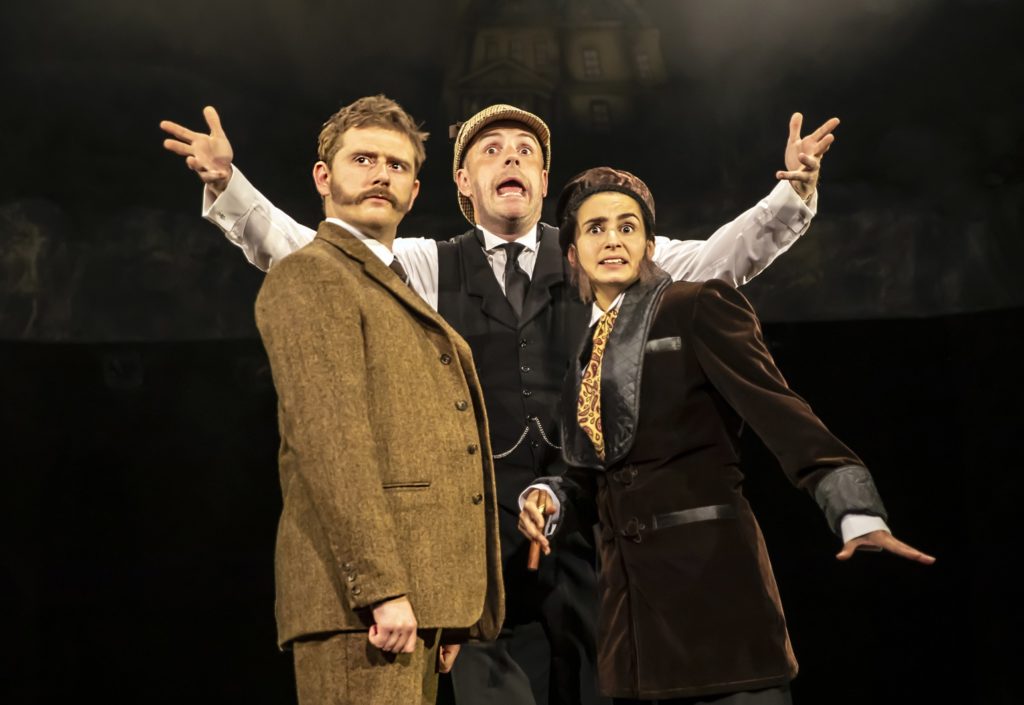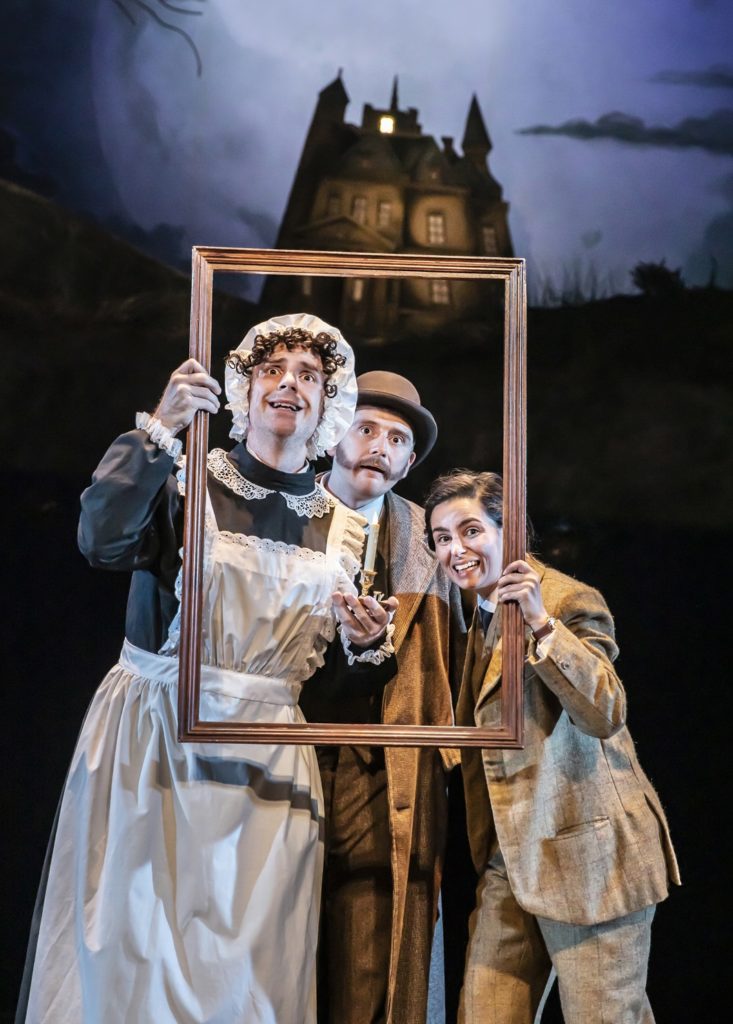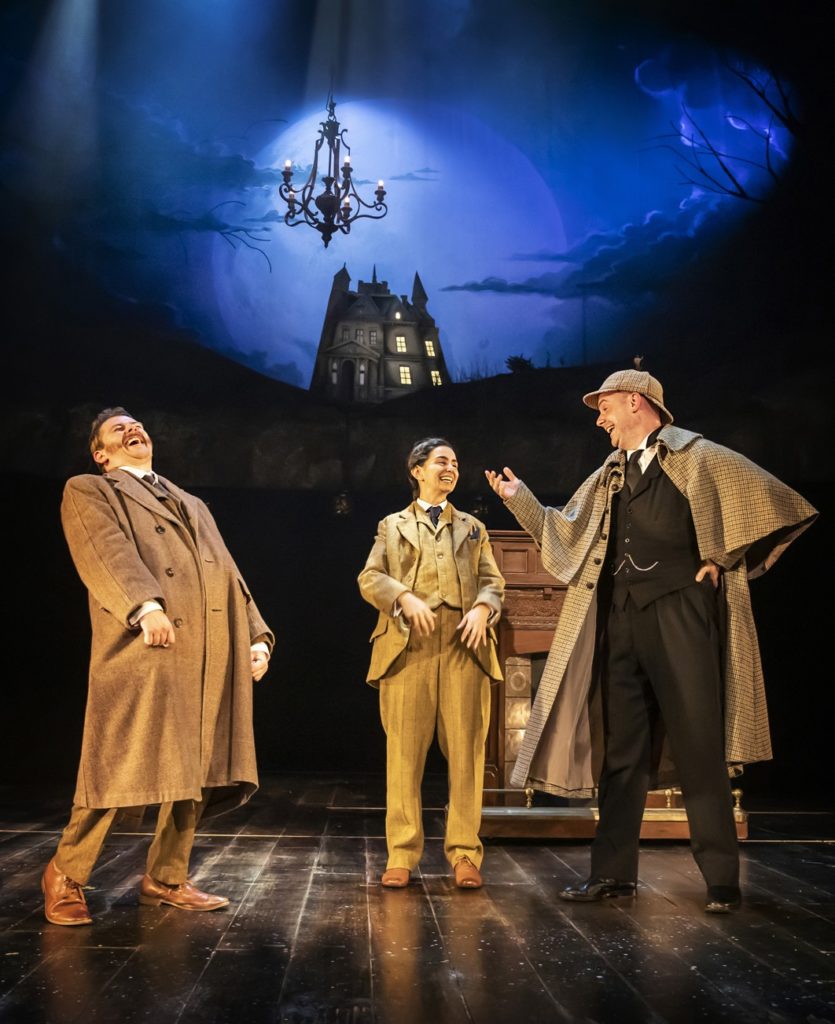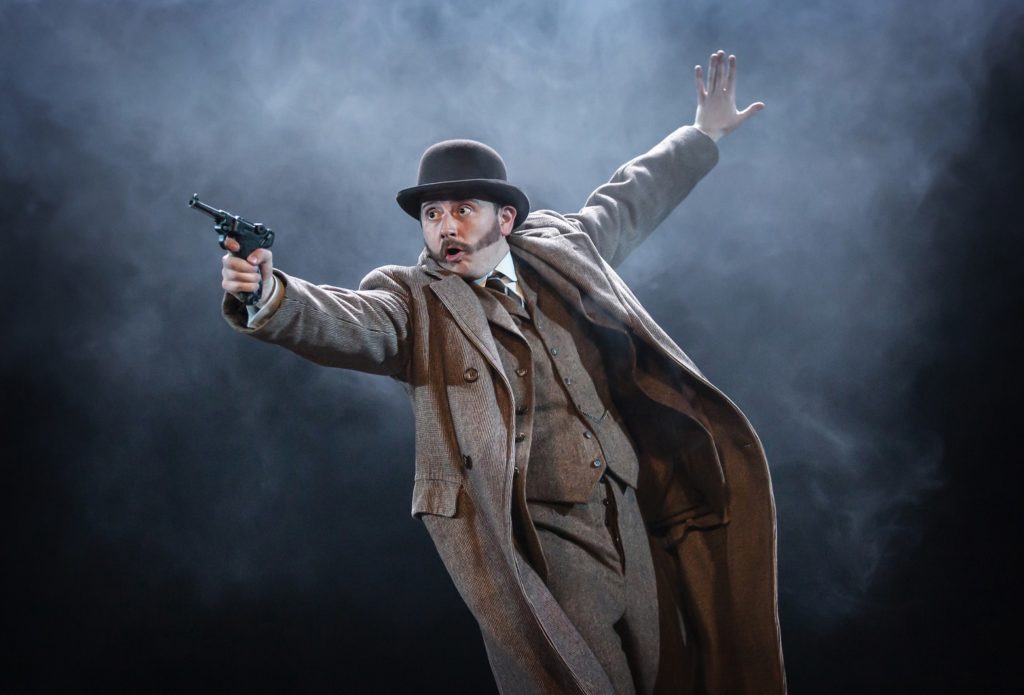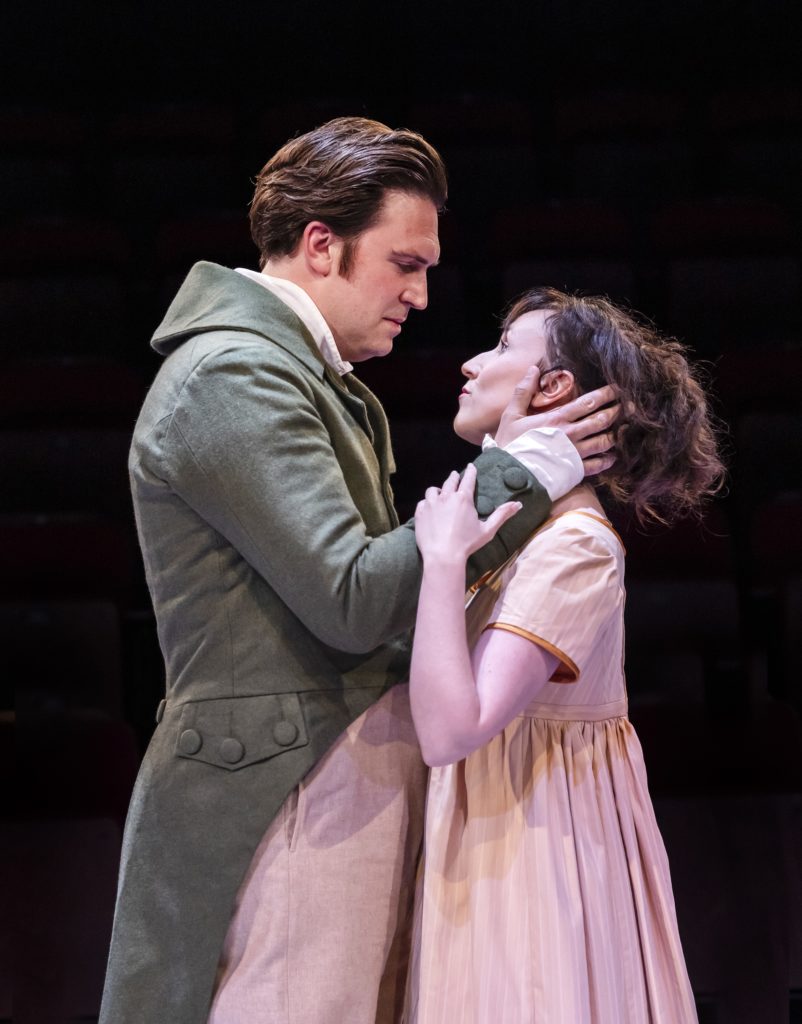
James Sheldon’s Mr Darcy and Rosetta Hesmondhalgh’s Lizzy Bennett in Pride And Prejudice. Picture: Pamela Raith
LOTTE Wakeham’s new production of Jane Austen’s Pride And Prejudice comes to Scarborough’s Stephen Joseph Theatre from July 3 to 26 in an adaptation by American writer Kate Hamill.
This co-production between the SJT, Octagon Theatre, Bolton, Hull Truck Theatre and Theatre by the Lake, Keswick, in association with Theatr Clwyd, Mold, opened at Bolton on June 5.
Hamill’s witty adaptation brings to life Austen’s story of love, misunderstandings and second chances, with music and dancing aplenty, in a whirl of Regency parties and courtship as hearts race, tongues wag and passions swirl around the English countryside.
Combining sharp humour and sparkling dialogue, Hamill’s re-telling uncovers the absurdities and thrills of finding the perfect (or imperfect) match in life.
Leading Wakeham’s cast at the heart of the love story are Rosa Hesmondhalgh as Lizzy Bennet and James Sheldon as Mr Darcy, joined by Aamira Challenger, Jessica Ellis, Ben Fensome, Joanna Holden, Dyfrig Morris, Eve Pereira and Kiara Nicole Pillai.
Octagon Theatre artistic director Wakeham says: “As a huge Austen fan, I am delighted to be directing this vibrant, witty and funny production, which has been adapted brilliantly by Kate Hamill. We have a stellar cast and creative team on board to bring this iconic story to life.”
Joining Wakeham and Hamill in the creative team are movement director Jonnie Riordan; composer and musical director Sonum Batra; set and costume designer Louie Whitemore; lighting designer Jamie Platt and sound designer Andy Graham.
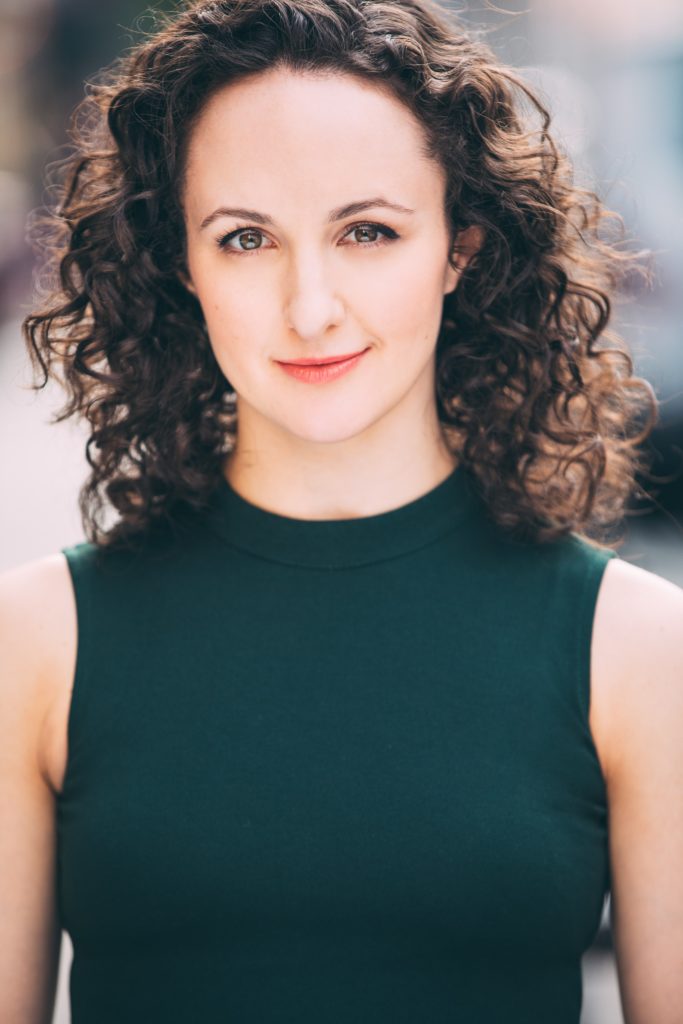
New York writer Kate Hamill. Picture: SubUrban Photography
Here Jeannie Swales puts questions to Kate Hamill about her adaptation of Pride And Prejudice.
What is it about Jane Austen, an early 19th-century Englishwoman, who rarely, if ever, travelled more than 100 miles from her rural home, that speaks to you as a 21st -century New Yorker?
“Well, I got interested in her work in a couple of different ways. I just love the novels and have read them many times. I spent a semester in London when I was at university, and I went to Bath and her house and the whole bit.
“But I take a new play approach to adaptations – I really treat it as a collaboration between myself and the original author, who is sometimes currently dead!
“And Jane Austen is interested in a lot of the same things that I’m interested in. She’s very, very funny, obviously. She’s really interested in how the dictates of our conscience clash with what society expects of us.
“She was very much a proto-feminist. I really wanted to adapt her books in the order that she wrote them – I’ve just finished Emma – so Pride And Prejudice was my second. I wanted to trace her journey and make each of
the plays very different. I also wanted to present them in a totally new way. “I like really irreverent, theatrical shows that treat something as a new play and are in conversation with the original, not just a copy-and-paste version. So I felt like Jane, who I sympathised with a lot and who was interested in a lot of the same things I was, was a great collaborator.”
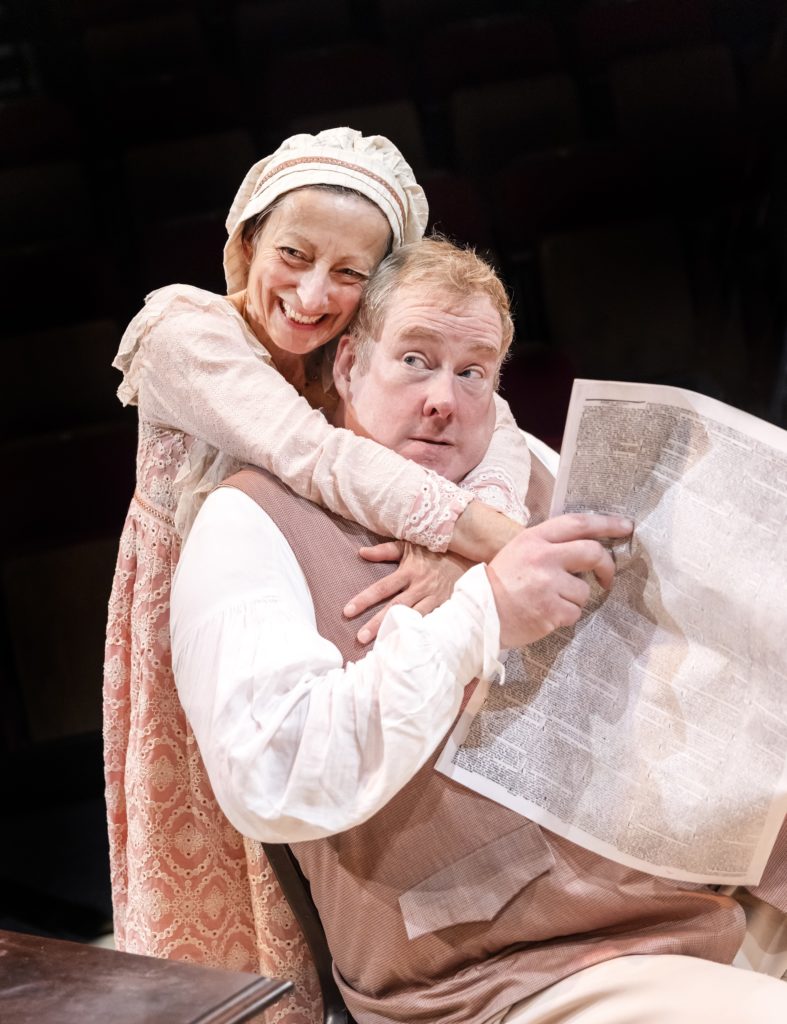
Joanna Holden and Dyfrig Morris in Pride And Prejudice. Picture: Pamela Raith
How do you approach adapting these stories? How do you identify the elements and incidents that you want to keep or lose?
“Jane [Austen] has been adapted a million times, so I’m really interested in what I have to bring to it. The original is always going to be the original; I don’t just want to create a copy. I want to create a work of theatre that is interesting to both people who know the novel and people who don’t know it at all.
“But also I want to create something that’s new and surprising even for people who do know the novel. I read the original and see what it brings out in me, the thematic questions, and then I write it very much as a new play in conversation with the original, cutting out anything that dramaturgically doesn’t work with that new play.
“So, for instance, with Pride And Prejudice, I was really interested in how we know that we’ve found the perfect match in life. Even now, and certainly in Jane Austen’s day, we treat love like a mix between a game and a war – down to tactics and strategies.
“I got very interested in the game theory – there are even [dating] books with titles like The Game and The Rules. So I wanted a play structure that’s very high stakes, and halfway between a game and a war, and I thought, that’s a farce.
“And then I thought, there’s been a bunch of different versions, down to Pride And Prejudice with zombies, and all sorts of loose adaptations like Bridget Jones’s Diary, which I’m a particular fan of, but I don’t think I’ve ever seen it as a farce before.”
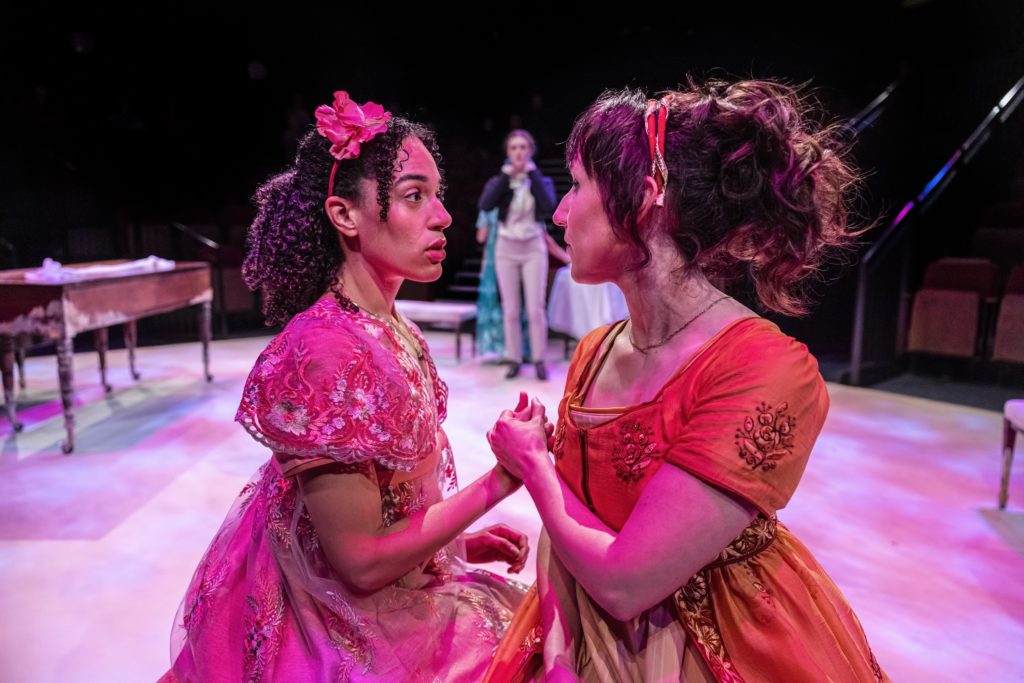
Aamira Challenger and Rosa Hesmondhalgh in Pride And Prejudice. Picture: Pamela Raith
Talking of the perfect match – the first production of your version of Pride And Prejudice starred you and your now-husband, Jason O’Connell, as Lizzy and Darcy…
“I actually met Jason about five years before I wrote Pride And Prejudice, and at the time I had a boyfriend. I met him and shook his hand, and it was like a bell went off in my head – something I’d never experienced before.
“And I thought, ‘oh, that is trouble and weird’, but I ignored it for about a year until I was single again. When I wrote Pride And Prejudice, we were starting to talk about marriage, and I had historically been someone who’d been frightened of marriage,
“I didn’t think it was for me, and now I’m very happily married. But I think Pride And Prejudice was my way of exploring all the different kinds of matches, and how they go wrong and how they go right. And yes, in the world premiere, I played Lizzy and he played Darcy, so I got to experience all that catharsis live!”
You have been frustrated by the dearth of shows with a feminist gaze, leading to a $100 bet with a friend, and from there to your first play, Sense And Sensibility. Was that bet the crystallisation of a long, slow process, or was it a light bulb moment?
“I think it probably just catalysed something that had been building in me. I think quite often I write from a place of great love, or great anger, and sometimes both.
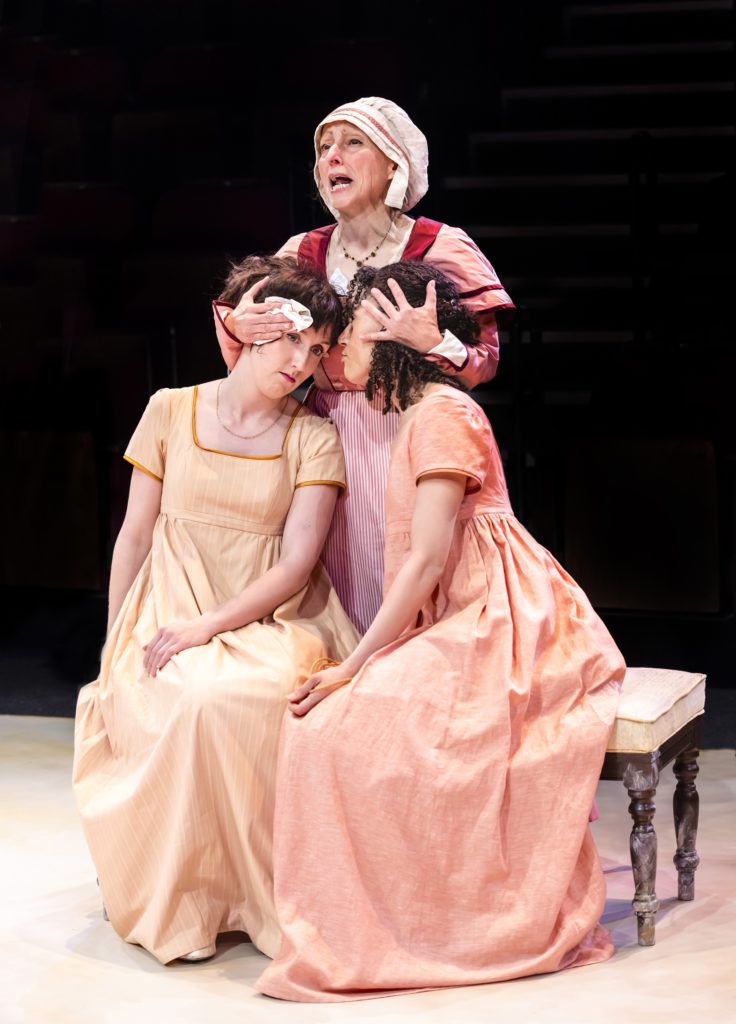
Rosa Hesmondhalgh, left, Joanna Holden and Aamira Challenger in Pride And Prejudice. Picture: Pamela Raith
“I love the theatre; I think it’s a transformative place, one of the few public spaces left that are sort of public squares, where you can have this live catharsis and you’re not just staring at a screen.
“But at that time, at least in the States, playwriting was very much a male-dominated field. In fact, at that point, the primary adaptor of Austen in the States was a man.
“Not that there’s anything at all wrong with men adapting Austen, of course, but I felt like this is this very important female writer and she’s not even being told through a female gaze.
“I infamously went out with my friend, and we split a couple of bottles of wine, and I wrote her a $100 dollar cheque and said, ‘if I don’t have a first draft to you in six months, you can cash this’.
“At the time I was very poor, so that would have meant not making my rent. So I always highly recommend to writers: write a cheque and give it to a friend you know will cash it!”
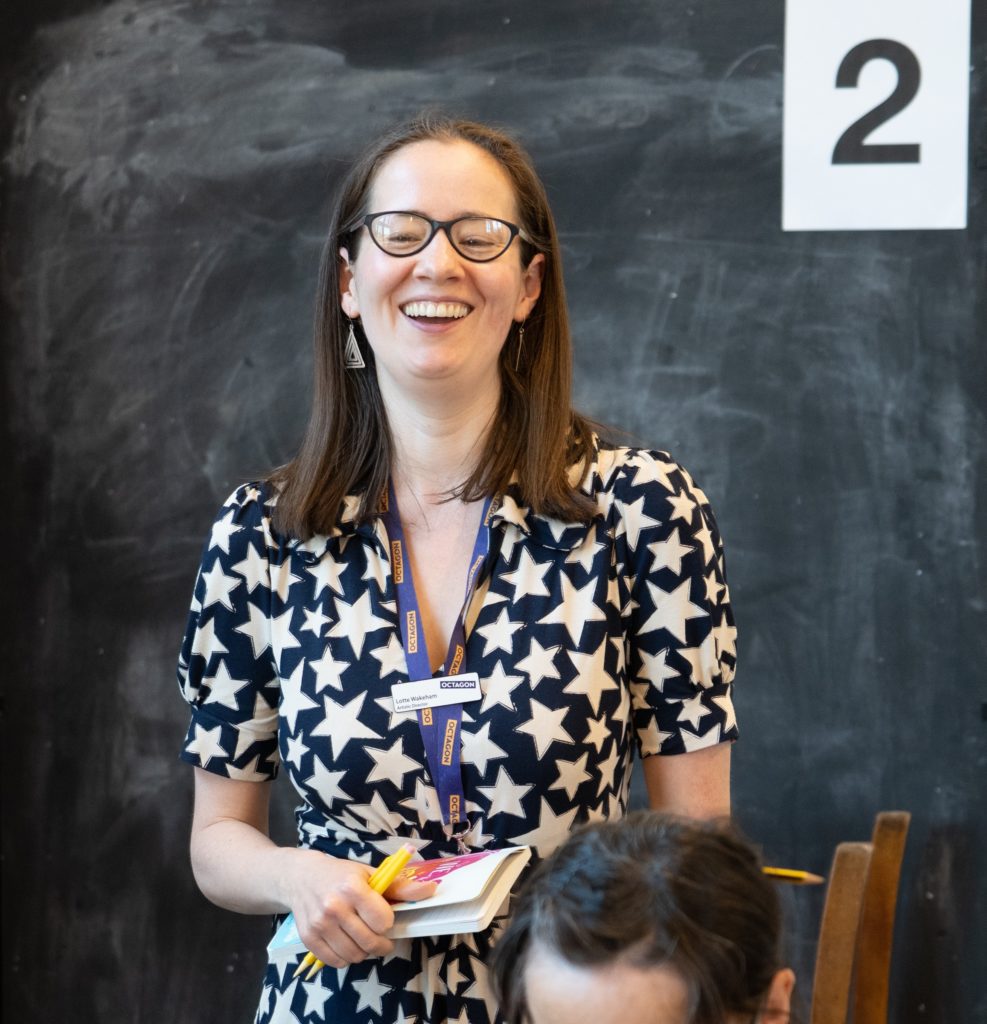
Director Lotte Wakeham rehearsing Pride And Prejudice at Octagon Theatre, Bolton. Picture: Bolton Documentary Photography
If you could go back in a time machine to meet Jane Austen, what would you like to discuss with her?
“First of all, I think she would be so fun to talk to! I‘ve read her letters and I’ve put parts of them in some of my adaptations, and she’s so cutting and mean – but in the most delightful way.
“I think I’d enjoy sitting and talking with her. I’d also like to ask her what drove her to write so prodigiously. She partially paralysed her thumb from pressing down so hard – she just wrote and wrote and wrote and eventually developed this thing.
“I read somewhere else that visitors would come and she would hide away so she could carry on writing. It’s so hard to write even now sometimes – and I have computers, and I live in a world where women can take ownership of their own work and get paid some money for it.
“I’m fascinated by what drove her to write so brilliantly at a time when it was all longhand and between social calls. Also, I feel like she’d got pigeon-holed as fusty, romantic, girly literature, and when I started reading her more seriously I was shocked by how funny and how socially smart she is.
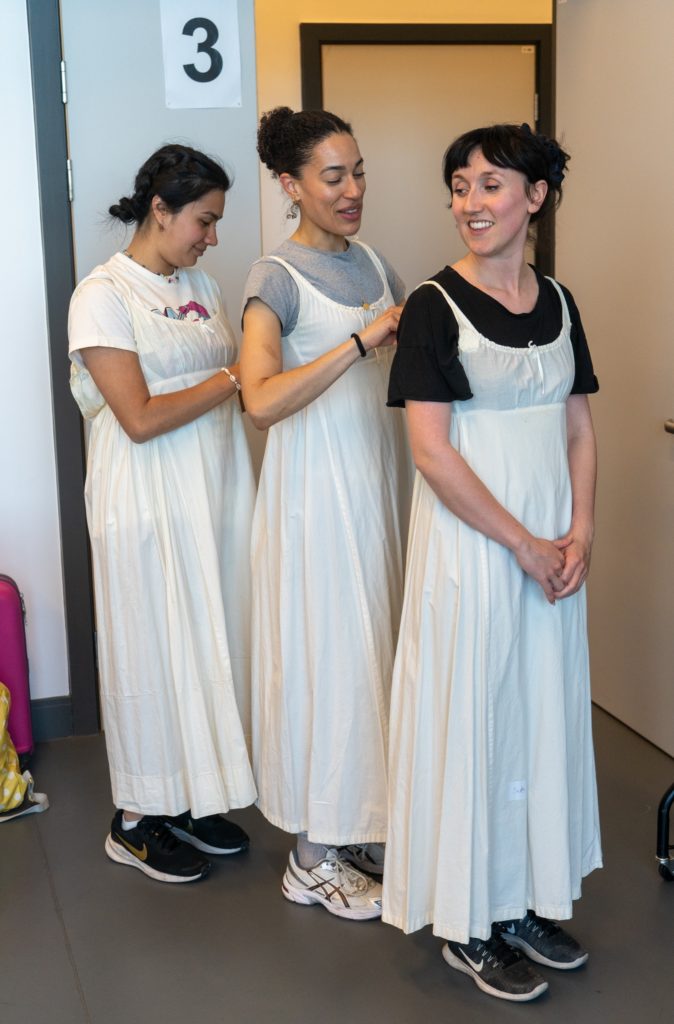
Kiara Nicola Pillai, left, Aamira Challenger and Rosa Hesmondhalgh in rehearsal for Pride And Prejudice. Picture: Bolton Documentary Photography
“I think it’s quite sexist when she’s just as brilliant as Dickens, or Hawthorne, or Thackeray or any of those men who are sometimes maybe taken a bit more seriously. I think I would just sit at her feet. And maybe beg her pardon a little bit.”
One final question: what do you think Jane would have made of the Trump family?
“Oh, she would have hated them! I think she would have absolutely loathed them and skewered them. Maybe that’s what I would talk to her about…”
Pride & Prejudice, Stephen Joseph Theatre, Scarborough, July 3 to 26, 7.30pm, Monday to Saturday, plus 1.30pm Thursday and 2.30pm Saturday matinees. Box office: 01723 370541 or sjt.uk.com. Also at Hull Truck Theatre, September 18 to October 11. Box office: 01482 323638 or hulltruck.co.uk.
Did you know?
KATE Hamill was named 2017’s Playwright of the Year by the Wall Street Journal and was among the ten most-produced playwrights in the United States from 2017 to 2024. She is now the most-produced living playwright in the USA.
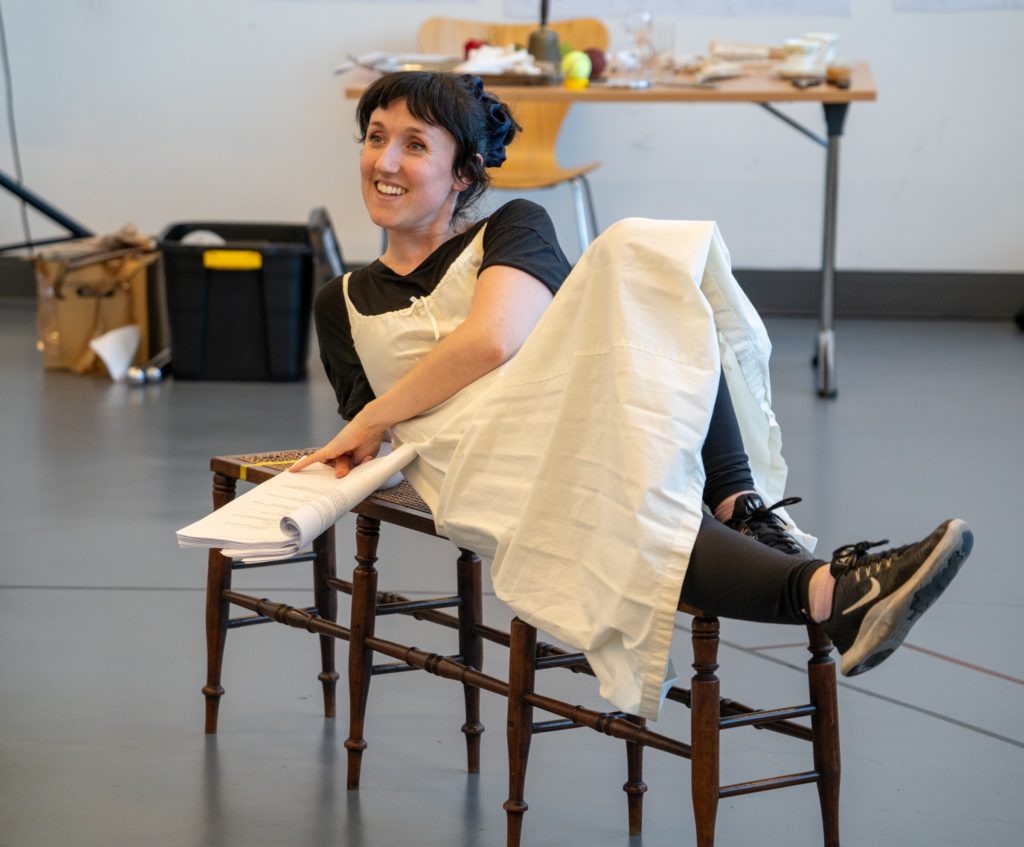
Rosa Hesmondhalgh in the rehearsal room

